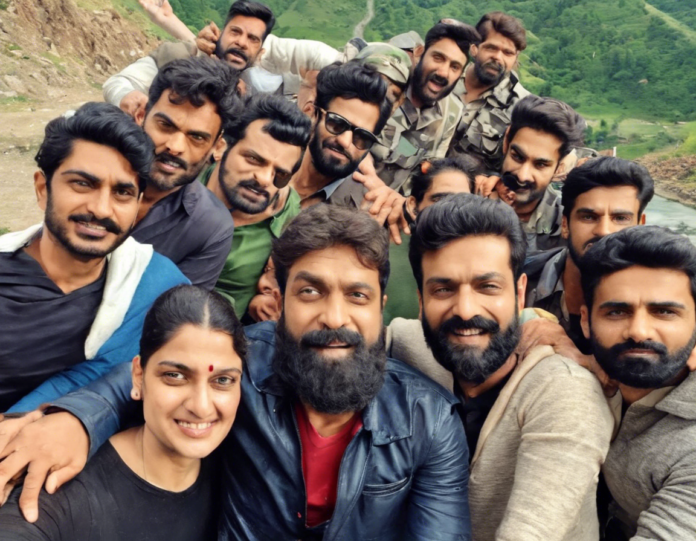Introduction:
Exploring the complex and provocative topic of Article 370, filmmakers and storytellers have delved deep into its history and implications to create thought-provoking narratives that challenge viewers’ understanding of politics, power, and identity. Through a diverse cast of characters and perspectives, these films bring to light the nuances and complexities of this contentious issue, shedding light on its impact on individuals and communities.
Understanding Article 370:
The Article 370 of the Indian Constitution granted special autonomous status to the region of Jammu and Kashmir, allowing it to have its own constitution, flag, and autonomy over all matters except foreign affairs, defense, finance, and communications. This article has been a subject of debate and controversy since its inception, with proponents arguing for its preservation to protect the region’s unique identity and autonomy, while critics advocate for its revocation to integrate the region more closely with the rest of India.
The Cast of Characters:
1. The Protagonist:
At the heart of every film on Article 370 is the protagonist, who embodies the struggle for identity, autonomy, and self-determination. This character represents the hopes, fears, and aspirations of the people of Jammu and Kashmir, navigating the complexities of political intrigue, personal relationships, and societal expectations.
2. The Political Elite:
In every narrative on Article 370, the political elite play a crucial role in shaping the destiny of the region. From politicians advocating for its preservation to those pushing for its revocation, these characters represent the clash of ideologies, ambitions, and power dynamics that define the political landscape of Jammu and Kashmir.
3. The Activist:
The voice of dissent and resistance, the activist in films on Article 370 challenges the status quo, fighting for justice, equality, and freedom. This character highlights the struggles of marginalized communities, the impact of conflict and violence, and the power of grassroots movements in shaping the future of the region.
4. The Outsider:
Often an outsider looking in, this character provides a fresh perspective on the complexities of Article 370, questioning assumptions, challenging biases, and seeking to understand the nuances of the region’s history and identity. Through their eyes, viewers gain new insights into the multifaceted layers of this contentious issue.
Themes and Motifs:
– Identity and Belonging:
Central to many films on Article 370 is the theme of identity and belonging, exploring how individuals and communities define themselves in the face of political upheaval, cultural pressures, and historical legacies. Characters grapple with questions of heritage, loyalty, and self-expression, seeking to find their place in a rapidly changing world.
– Power and Control:
The dynamics of power and control shape the narrative of Article 370, illuminating the tensions between autonomy and authority, freedom and oppression, agency and constraint. Characters navigate these power structures, forging alliances, making sacrifices, and challenging injustice in their quest for a better future.
– Conflict and Resolution:
Embedded in the fabric of films on Article 370 is the theme of conflict and resolution, highlighting the personal, political, and social tensions that arise from competing interests, ideologies, and agendas. Through moments of crisis, confrontation, and catharsis, characters confront their demons, forge alliances, and seek paths to reconciliation and peace.
Frequently Asked Questions (FAQs):
Q1: What is the significance of Article 370 in the context of Indian politics?
A1: Article 370 granted special status to Jammu and Kashmir, enabling it to have its own constitution and autonomy. Its revocation in 2019 sparked debates on federalism, democracy, and human rights in India.
Q2: How do filmmakers approach the subject of Article 370 in their films?
A2: Filmmakers employ diverse storytelling techniques, character arcs, and thematic explorations to delve into the complexities of Article 370, offering nuanced perspectives on its impact on individuals and communities.
Q3: What are some recommended films that explore the theme of Article 370?
A3: Films like “Haider,” “Article 15,” and “No Fathers in Kashmir” offer compelling narratives on the subject of Article 370, delving into its political, social, and cultural ramifications.
Q4: How has the revocation of Article 370 impacted the people of Jammu and Kashmir?
A4: The revocation of Article 370 has led to increased militarization, political instability, and human rights violations in Jammu and Kashmir, exacerbating tensions and divisions within the region.
Q5: What are some ongoing debates and discussions surrounding the issue of Article 370?
A5: Ongoing debates focus on the legality, constitutionality, and morality of revoking Article 370, as well as its implications for democracy, federalism, and human rights in India.
Conclusion:
In conclusion, films on Article 370 offer a powerful and poignant reflection on the complexities, contradictions, and controversies surrounding this contentious issue. Through a diverse cast of characters, themes, and motifs, these narratives challenge viewers to think critically, empathize deeply, and engage meaningfully with the central questions of identity, power, and conflict. By exploring the nuances of Article 370 through the lens of storytelling, filmmakers illuminate the human dimensions of politics, inviting audiences to reflect on the past, present, and future of Jammu and Kashmir with compassion, curiosity, and courage.


Recent comments